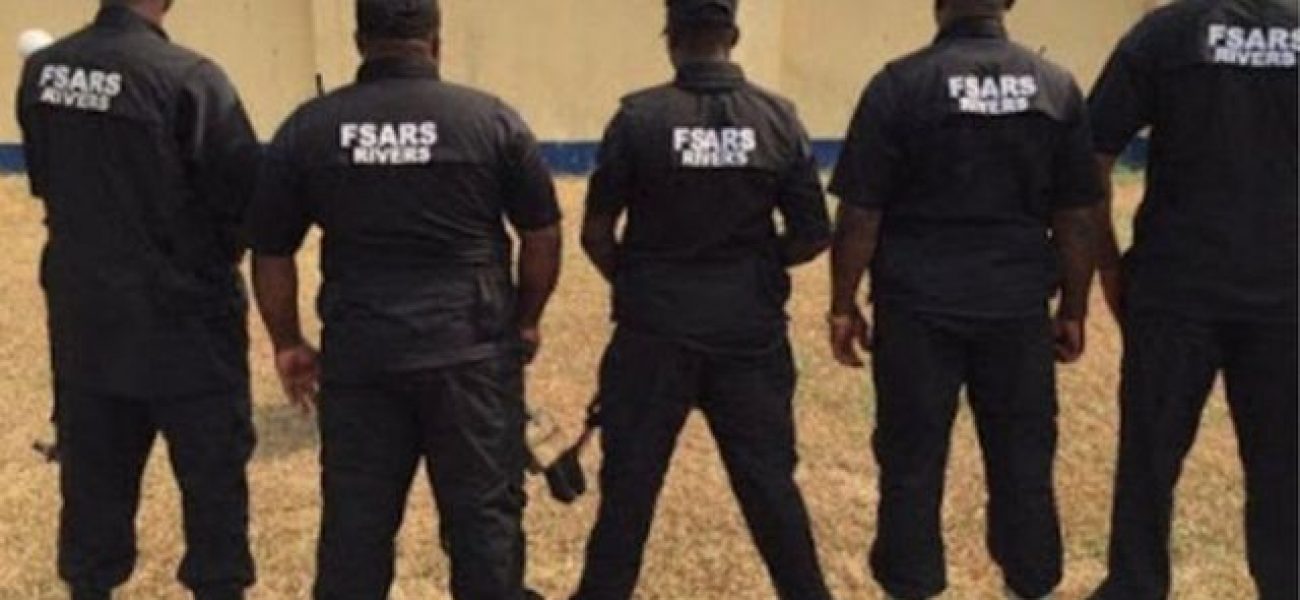A specialised unit of the Police Force, Federal Special Anti-Robbery Squad (FSARS) created to confront the scourge of armed robbery in the country again came under severe public criticism and attack for recent incidents of violations of human rights and killings. FSARS and its State counterpart, SARS, are notorious in Nigeria for incredible human rights violations.
Operatives of FSARS and SARS have long been involved in perpetrating gross rights violations, extortion and extra-judicial killings of Nigerians. The major target of these violations are young persons, who are profiled and targeted by SARS as a result of their mode of dressing. Operating under the guise of confronting cyber-crime or “yahoo, yahoo boys”, SARS officials are quick to confront young Nigerians on the streets, especially if their hair style is “Rastafarian” or are dressed in particularly “care-free” styles. These young persons are visited with all manners of abuse, including impounding of their mobile phones, computers or other electronic gadgets and compelling them to open it for the police to read the messages contained therein, etc. Sometimes they are compelled to transfer monies from their accounts to the perpetrating police officers, to be able to regain their freedom or even save their lives.
These police operatives often appear in mufti, making it difficult to identify them as policemen. Over time, many Nigerians have shared their experiences of being harassed and robbed by personnel of this squad. It would appear that the very persons saddled with the responsibility of protecting Nigerians from criminals are perpetrating the act they out to be fighting against, drastically eroding the confidence of the populace in the police. In addition to the insurgency plaguing the country, internal security also appears to be failing as evidenced by an increase in the rate of armed robbery, kidnapping and other crimes.
In response to the public outrage, the Inspector General of Police, IGP Mohammed Adamu has for the umpteenth time announced the ban of the Federal Special Anti-Robbery Squad (FSARS) and some other specialised units of the Nigeria Police from routine street patrols and other conventional low-risk duties such as mounting road blocks, traffic checks, stop and search, etc. Several deaths and incidents across the country involving operatives of FSARS, including the near lynching of an operative of FSARS in Lagos State and social media protests against the unit’s activities culminated in this development. This will not be the first time Nigerians are protesting against the activities of FSARS nor the first time the leadership of the Police Force will be banning or restricting their activities, as its response to such criticisms. In August 2018, the leadership of the Police announced that it was reforming the unit, with the only evident change being the addition of the word ‘Federal’ to the name of the unit, as there was no notable improvement observed in their conduct.
According to a statement by the Force Public Relations Officer, DCP Frank Mba, the IGP has directed that all personnel of FSARS, Special Tactical Squad (STS) and Intelligence Response Team (IRT) must appear in their police uniforms while on official assignment. He has also banned the indiscriminate and unauthorized search of mobile phones, laptops and other smart devices by police personnel. In addition, the X-squad and the Monitoring Unit of the Nigeria Police have been ordered to monitor and arrest erring personnel of FSARS, as well as other police personnel who violate the regulations of the Force.
The recently passed Police Act, 2020, provides safeguards against human rights abuse. Section 54 of the Act forbids the police from arresting a person on the grounds of profiling and specifically forbids a person from being arrested or harassed as a result of their dressing.

